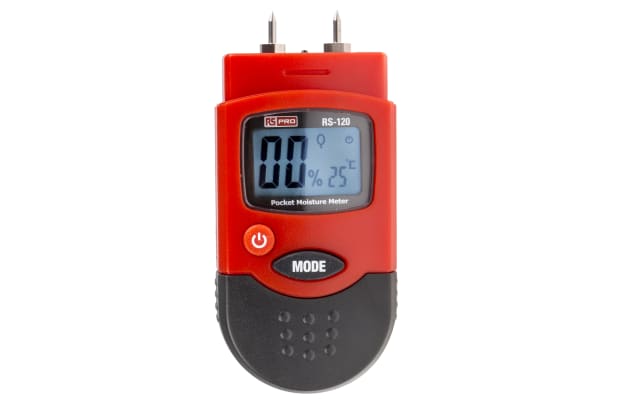Why Every Homeowner Needs a Moisture Meter: Key Advantages and Functions
Why Every Homeowner Needs a Moisture Meter: Key Advantages and Functions
Blog Article
The Ultimate Overview to Dampness Meters: A Comprehensive Overview and Exactly How They Can Conserve You Cash
Moisture meters serve as crucial tools in identifying and monitoring moisture material in materials, assisting in avoiding pricey damages and ensuring the high quality of products. Comprehending the nuances of various kinds of moisture meters, their applications, and the possible cost-saving benefits they provide can be a game-changer for professionals and businesses alike.
Kinds of Moisture Meters
One usual type is the pin-type wetness meter, which gauges the electric resistance in between 2 pins placed right into a product. Pinless dampness meters, on the various other hand, use electromagnetic sensing unit plates to check a larger area without creating damage to the product's surface area.

Infrared moisture meters gauge the thermal properties of a material to establish its wetness material non-invasively, making them valuable for applications where pin or pinless meters may not be appropriate. Recognizing the various types of dampness meters readily available can assist markets choose the most appropriate tool for their details wetness dimension needs.

Advantages of Making Use Of Wetness Meters
Moisture meters supply indispensable advantages in precisely assessing and monitoring dampness levels in varied materials and atmospheres. One of the primary advantages of utilizing dampness meters is the prevention of prospective damage caused by excess moisture.
Additionally, utilizing dampness meters can lead to raised energy efficiency. In farming settings, wetness meters play a crucial duty in enhancing crop returns by allowing farmers to monitor dirt wetness levels and make informed watering decisions.
Just How to Choose the Right Wetness Meter
When choosing a moisture meter, it's crucial to ensure that the meter is ideal for the details material you will certainly be testing. Different materials have varying electrical properties that can impact dampness readings, so picking a meter created for your product is essential for exact outcomes. By carefully evaluating these variables, you can choose a dampness meter that meets your needs and offers exact wetness dimensions for your tasks.
Correct Methods for Dampness Meter Use

Expense Savings Through Dampness Meter Applications
How can the strategic usage of wetness meters lead to considerable price financial savings throughout different industries? Dampness meters play an essential duty in cost savings by protecting against possible damages and guaranteeing quality assurance in various fields. In the farming industry, dampness meters aid in identifying the optimal time for collecting plants, stopping over-drying or excess dampness that can affect the final item's quality. This exact tracking helps farmers visit our website avoid unneeded losses and optimize their return.
Similarly, in building, moisture meters assist stop costly damages by detecting moisture degrees in structure products, such as wood or concrete, which can lead to architectural problems otherwise resolved immediately. By identifying issue locations at an early stage, professionals can take rehabilitative steps to prevent comprehensive fixings or substitutes, ultimately saving time and cash.
In addition, in the food handling sector, moisture meters are crucial for checking product high quality and making sure conformity with security regulations. By properly gauging dampness material in foodstuff, makers can avoid putridity, keep quality, and lower waste, resulting in substantial expense financial savings. In general, the critical application of dampness meters is a useful financial investment that can result in substantial expense decreases and enhanced efficiency throughout different sectors.
Final Thought
To conclude, dampness meters are useful tools for finding and measuring wetness levels in various materials. By utilizing the right moisture meter and following appropriate strategies, users can successfully stop pricey damages brought on by excess moisture. Investing in a high quality wetness meter can lead to substantial cost savings over time by determining prospective concerns at an early stage and making it possible for prompt removal. Ultimately, wetness meters are important instruments for preserving the integrity and durability of products and frameworks.
Dampness meters serve as vital devices in spotting and keeping an eye on moisture web content in materials, aiding in avoiding expensive damages and making sure the quality of products. Infrared moisture meters gauge the thermal properties of a product to determine straight from the source its dampness material non-invasively, making them helpful for applications where pin or pinless meters may not be appropriate.Wetness meters provide vital advantages in accurately analyzing and checking dampness levels in varied materials and settings. In farming settings, dampness meters play an important duty in enhancing crop yields by making it possible for farmers to check soil wetness levels and make educated watering choices.In conclusion, wetness meters are valuable devices for spotting and gauging wetness degrees in numerous products.
Report this page